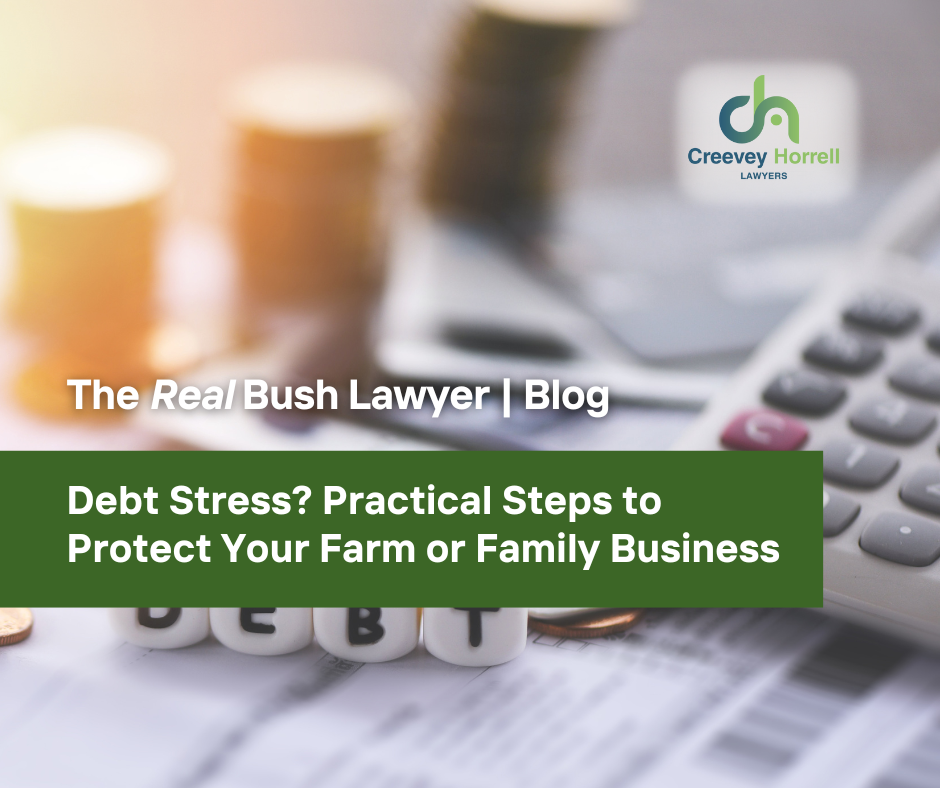PITFALLS OF AGENCY AGREEMENTS IN SALES
- Creevey Horrell Lawyers

- Mar 24, 2023
- 4 min read
You’ve done the hard sell, out of all the agents in the market place the seller has chosen you and you have come through, securing a contract at your seller’s desired price.
What could go wrong?
Like any other agent, you probably have a system in place to sign off on the Form 6 even before monies are deposited into trust for advertising.
Unfortunately, we sometimes see that an agent:
a. failed to obtain a fully signed Form 6 before the buyer has been placed in contact with the seller; or
b. had the Form 6 signed but it is deficient or is unclear to the extent that it is ambiguous; or
c. forgot or misplaced the signed Form 6.
Systems and procedures can prevent human error in losing a document or forgetting to get it signed, and there is a lot you can do to ensure that the form is completed correctly and secure your commission.
1. Do a title search first
Often the property is held jointly, but perhaps only one or the other of a couple has the house in their name for the purposes of asset protection.
It could be that you are only talking to one out of two title holders. Perhaps they haven’t mentioned a spouse, nor do they have a ring their finger, it doesn’t mean that there isn’t a second person on title.
Do a title search first and ensure the names of the parties are recorded and spelt correctly in Part 1, and anyway you need it for Part 3 in describing the property correctly (don’t rely on a rates notice).
Plus, conducting a title search is normally necessary to meet your conduct standards under section 19 of the Property Occupations Regulation 2014.
2. Classify the type of listing
For open listing there is no real risk other than not being the agent who secures the sale.
If it's a sole agency:
ensure that the client knows what it means;
explain clearly the “effective cause of sale”; and
ensure there are start and end dates and the term doesn't exceed the maximum 90 days.
If it's an exclusive agency:
ensure that the client understands you are entitled to the commission regardless as to who sells the property;
ensure there are start and end dates and the term doesn't exceed the maximum 90 days; and
ensure that the client understands that if you are the “effective cause of sale” even if the house is sold after the end date then you are entitled to commission.
Finally, ensure that the client has agreed to have an open listing at the expiry of the sole or exclusive agency to ensure you retain the client whilst arranging another Form 6.
3. Discussing and recording commission and associated expenses
Remember that this needs to include GST. Expressing prices to consumers as an amount plus GST can produce problems under consumer protection laws.
If you need to change fees, charges or commission (depending on the circumstances) you should enter into a new Form 6 rather than initial hand amendments.
4. Ensure you are the only agent
Notwithstanding that you have done everything correct with the Form 6, there is no guarantee that your client isn’t approaching other agents to sell their property faster, not realising the implications with a sole or exclusive agency.
Although this may not seem like your problem, if the property sells and there are two or more agents out there (including you) with fully executed Form 6 over the same property with the same client, consider:
the equity in the property and if it can withstand additional commissions whilst still paying out the mortgagee;
have you covered all your bases with the Form 6 to ensure there was no misunderstanding in terms of the exclusive agency; and
is the seller likely to sit by and take on two or three commissions or will they do everything to fight it.
Moreover, you need to keep in mind your conduct standards under section 21 of the Property Occupations Regulation 2014.
Ensure that you are either the only agent, or if you find another agent, ensure there is no exclusivity and if there is start discussing sharing the commissions – and make sure you satisfy your disclosure obligations to the client in line with section 21.
Another helpful point is to have a standard email sent to your clients covering off that they have signed into an exclusive or sole agency and explaining the implications.
5. Ensure you have advised the client to seek legal advice
As critical as signing is, it is just as critical to ensure that you can prove having given your clients the opportunity to obtain legal advice on the document prior to signing.
It is not just enough to verbally express to your client that legal advice should be sought, but to ensure that you have written to them “you should seek legal advice before signing this document”.
If we take the example of two or more agents, each with their exclusive agency agreement connected to the same client and property, having proof that the client has either obtained legal advice or was formally given the opportunity to obtain legal advice before signing into your Form 6 may be critical for you.
6. Provide a copy to your client
Failure to provide a copy to your client may result in a penalty of up to $28,750.00 (200 penalty units) so ensure that all parties are on the same page, give them a copy and ensure you have evidence of having provided such.




.png)




Comments